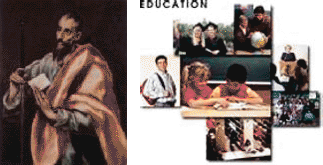Official Ecclesial Documents to Implement the Second Vatican Council on Relations with Jews: Study Them, Become Immersed in Them, and Put Them into Practice
DOI:
https://doi.org/10.6017/scjr.v4i1.1521Keywords:
Catholic-Jewish Relations, Second Vatican Council, Commission for Religious Relations with the Jews, John Paul II, covenant, interreligious dialogue, neo-supersessionismAbstract
In the wake of recent tensions in Catholic Jewish relations in the United States, this article examines the implementation of the Second Vatican Council's decision "to evaluate and define in a new way the relationship between the Church and the faith of Israel," as Pope Benedict XVI has described it. Official documents of the Vatican Commission for Religious Relations with the Jews and a body of papal teachings put forth by Pope John Paul have authoritatively delineated the direction according to which the Council is to be interpreted and put into practice. This trajectory of implementation has begun to articulate what could be called a "theology of shalom" concerning the Catholic Church's relationship to Judaism and the Jewish people, which includes a respect for Judaism's continuing covenantal life with God and a commitment to interreligious dialogue for the purpose of mutual understanding. However, this post-conciliar trajectory is challenged by Catholics who fear that the universal salvific mediation of Christ is being threatened. Advancing theological concepts that express a sort of "neo-supersessionist" devaluation of Judaism, these critiques necessarily disregard relevant papal and Vatican teaching. The article ends with an examination of the magisterial weight of the conciliar and post-conciliar implementing documents, concluding that their clear direction must be followed. As John Paul II declared, "It is only a question of studying them carefully, of immersing oneself in their teachings and of putting them into practice."
Downloads
Published
How to Cite
Issue
Section
License
Copyright (c) 2015 Studies in Christian-Jewish Relations

This work is licensed under a Creative Commons Attribution 4.0 International License.
Please navigate to the Copyright Notice page for more information.

